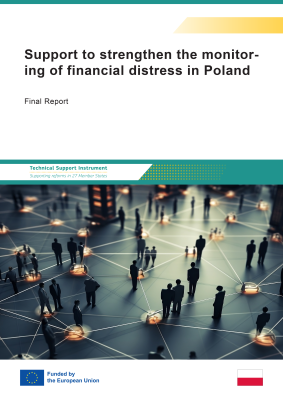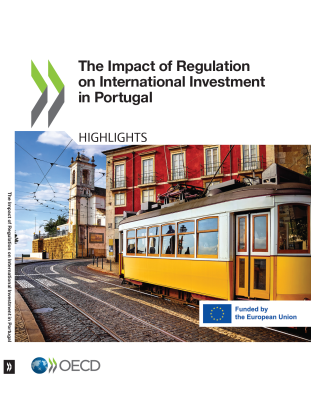Filter by
Publications (266)
RSS
The support focused on two workstreams. Firstly, on improving the continuous professional development (CPD) model that currently exists for healthcare professionals, by ensuring that their choice of training actually meets their professional development needs.
- Country
- Lithuania
- Year
- 2022

The commission helped the Italian Ministry of Education and Merit (MIM) understand key challenges related to the teaching workforce and develop a forecasting model to estimate teacher demand and supply in Italy, through a project funded by the EU under the Technical Support Instrument (TSI).
- Year
- 2022

The commission helped the Polish Ministry of Development and Technology develop a framework for a support system and early warning mechanisms for entrepreneurs. The project delivered effective solutions for the New Chance Policy to assist struggling businesses.
- Country
- Poland
- Year
- 2021

With the support of the European Commission, the project was launched to investigate the reasons behind Portugal’s persistently low investment levels, which are holding back productivity growth and the country’s green transition objectives.
- Country
- Portugal
- Year
- 2021

High administrative burden and regulatory barriers hamper productivity of the EU enterprises, especially SMEs.
- Country
- Estonia
- Year
- 2021

The general objective of this service is to contribute to institutional, administrative and growth-sustaining structural reforms in Spain.
- Country
- Spain
- Year
- 2021

The European Commission supports Estonia in identifying a suitable energy efficiency pathway and action plan and in developing and implementing policies to achieve Estonia’s energy savings obligation.
- Country
- Estonia
- Year
- 2022

This TSI 2021 project in Portugal aimed to advance the implementation of a national strategy for reducing burdens on citizens, businesses, and public administration.
- Country
- Portugal
- Year
- 2021

The Commission aimed to provide the Estonian Environmental Board with a national methodology to assess the effectiveness of their biodiversity conservation measures.
- Year
- 2022
This mid-term evaluation covers all projects funded under the 2021, 2022 and 2023 TSI
cycles, in all 27 Member States.
The Technical Support Instrument (TSI) Mid-term Evaluation was released on 12 May 2025 providing key insights on the implementation of the TSI. It was conducted halfway through the TSI’s implementation period (2021-2027) to assess its early progress and impact.

The Commission supported a project aimed at assisting Slovenia in its efforts to improve the justice system.
- Country
- Slovenia
- Year
- 2021

The European Commission support the Ministry of Transport in delivering sustainable transport.
- Country
- Malta
- Year
- 2022

The project provided support to improve the technical preparedness and inclusivity of the implementation of the Just Transition Fund (JTF) in Hungary by the Ministry of Public Administration and Regional Development and the Ministry of Energy in Hungary.
- Country
- Hungary
- Year
- 2022

The ICCCS project aimed to enhance cancer care coordination and screening in Latvia and Slovakia, funded by the EU's Technical Support Instrument.
- Country
- Latvia
- Slovakia
- Year
- 2021

In Croatia, the data infrastructure used to track poverty and social exclusion indicators and to monitor the implementation progress of social policy programs is weak.
- Country
- Croatia
- Year
- 2022

The Commission aims to foster the social inclusion of children with disabilities in the Slovak Republic by advancing the deinstitutionalisation of substitute care.
- Country
- Slovakia
- Year
- 2022

The project aimed to strengthen the epidemiological surveillance and public health emergency preparedness and response systems in Greece, through technical assistance and capacity building.
- Country
- Greece
- Year
- 2021

The project aims to support Malta in developing and applying new methodologies for planning, designing, and monitoring the renovation of public buildings.
- Country
- Malta
- Year
- 2022

The Swedish government is addressing the housing shortage and its impact on job mobility and intergenerational inequality through the gradual implementation of a “22-point plan,” with a focus on improving residential construction and the efficiency of the housing sector.
- Country
- Sweden
- Year
- 2021
